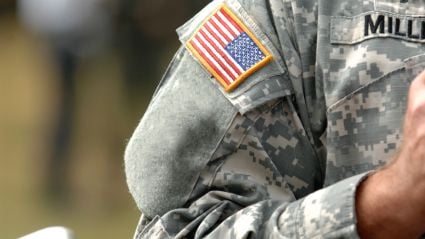
Throughout the United States' long history, support for veterans and military families has fluctuated within the general populace, often reflecting broader sentiments toward national service and sacrifice. As countries and populations face increasing sources of strain—from technological transformations to resource pressures and demographic changes—service becomes even more important.
In honor of Veterans Day in the United States and Remembrance Day throughout much of Europe and the Commonwealth, I would like to draw attention to the continued commitment of active duty military personnel, spouses, and veterans to service, both for their countries and their communities. Support for veterans and military families tends to peak, particularly in the United States, when the general public is brought together through a shared sense of purpose. Yet the actual contributions of those who choose such service, to both society and the economy, are not limited to occasions of war or major conflict; rather, they extend across the country as a whole.
As the Milken Institute has drawn attention to the issue of economic mobility for veterans and their families, it is essential to recognize that this ecosystem remains highly dependent on a framework of support that spans both the public and private sectors.
Over the past several weeks, the United States has experienced the longest government shutdown in its history. Even as efforts appear to be underway to end the shutdown, the impact on veterans, military spouses, and families has been immense. Active duty military personnel have not only seen their pay halted, but tens of thousands of veterans and spouses who work directly for the federal government have also been affected. As of December 2024, the government estimated that more than 642,000 veterans were employed by the federal government. This figure does not include the thousands of military spouses and spouses of veterans who also work for the government.
This year has been particularly hard for veterans and spouses who chose to continue serving, given the impacts of Department of Government Efficiency cuts—especially to the Department of Veterans Affairs—and the continued lack of agreement on the National Defense Authorization Act, even though one such proposal includes a much-needed 60 percent increase in the Family Separation Allowance.
These challenges come at a time when enlistment in the US military has actually risen over the course of 2025, driven by factors ranging from a significant increase in enlisted pay from the 2024 National Defense Authorization Act to active recruiting and a renewed willingness to provide new enlistees with the physical and educational training needed to meet basic enlistment standards. However, it is important to recognize that enlistment in the modern military remains a calling of service—not only in defense of the country but also in addressing numerous key challenges as the changing climate impacts both the country’s aging infrastructure and its people. The Army Corps of Engineers continues to play a key role in maintaining the nation’s waterways, dams, dikes, reservoirs, and levees, which not only protect against drought but also against flooding and other disasters. The military, including the National Guard, has played key roles in combating forest fires, cleaning up after hurricanes and other natural disasters, and helping to maintain the systems that protect against future events.
In the midst of this, it is vital to recognize that even with recent pay increases and proposed increases in separation allowances, military and veteran families have come under incredible strain as a result of the recent government shutdown in the United States, as well as ongoing shifts in government spending priorities. It was estimated that, as of April 2025, 1.2 million veterans were receiving government food assistance through the Supplemental Nutrition Assistance Program, with as many as one in four military families experiencing food insecurity even before the shutdown. Recognizing that we must take care not only of families who serve while on active duty but also transitioning afterward—very often into continued service in their post-military lives—remains critically important. The Military Family Advisory Network has been working to provide direct food relief to military families affected by the shutdown and its aftermath. Meanwhile, Blue Star Families has partnered with organizations to provide economic relief and community connections during this period.
As we approach Thanksgiving in the United States, it is essential to remember that service—whether in the military or afterward—is a key pillar of society. We should take a moment to remember and acknowledge everyone who has served. Both our economy and society are better for it.













